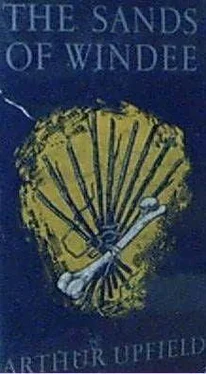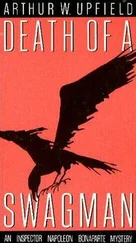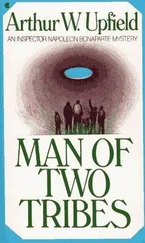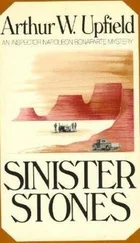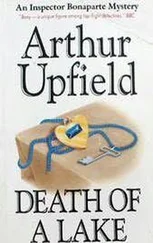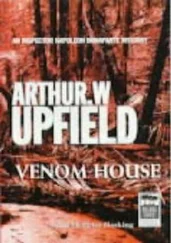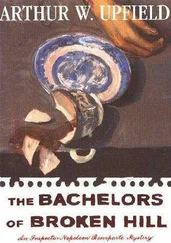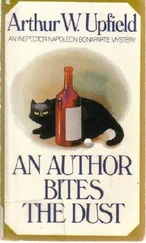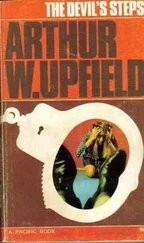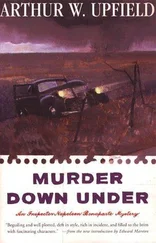Arthur Upfield - Sands of Windee
Здесь есть возможность читать онлайн «Arthur Upfield - Sands of Windee» весь текст электронной книги совершенно бесплатно (целиком полную версию без сокращений). В некоторых случаях можно слушать аудио, скачать через торрент в формате fb2 и присутствует краткое содержание. Жанр: Классический детектив, на английском языке. Описание произведения, (предисловие) а так же отзывы посетителей доступны на портале библиотеки ЛибКат.
- Название:Sands of Windee
- Автор:
- Жанр:
- Год:неизвестен
- ISBN:нет данных
- Рейтинг книги:3 / 5. Голосов: 1
-
Избранное:Добавить в избранное
- Отзывы:
-
Ваша оценка:
- 60
- 1
- 2
- 3
- 4
- 5
Sands of Windee: краткое содержание, описание и аннотация
Предлагаем к чтению аннотацию, описание, краткое содержание или предисловие (зависит от того, что написал сам автор книги «Sands of Windee»). Если вы не нашли необходимую информацию о книге — напишите в комментариях, мы постараемся отыскать её.
Sands of Windee — читать онлайн бесплатно полную книгу (весь текст) целиком
Ниже представлен текст книги, разбитый по страницам. Система сохранения места последней прочитанной страницы, позволяет с удобством читать онлайн бесплатно книгу «Sands of Windee», без необходимости каждый раз заново искать на чём Вы остановились. Поставьте закладку, и сможете в любой момент перейти на страницу, на которой закончили чтение.
Интервал:
Закладка:
“Humph!” Bony smoked reflectively.
“That was the only solution at which I could arrive,” Morris concluded, “and Headquarters were entirely in agreement with me.”
“How far from the homestead was the car found?”
“Two miles.”
“Only two miles? Generally that distance from a homestead would be within a night- or horse-paddock, where one or more of the hands would be riding almost daily.”
“There you are right. The car was abandoned in what is called the South Horse Paddock, which is only three miles square. But Mr Stanton had used it temporarily for sheep during shearing, and it had been eaten bare. So there was no stock of any sort in the paddock at that time.”
“Could the car be seen from the track?”
“No. When it left the road it took a wide curve, and stopped close to a large pine-tree. It was discovered by the station bullock-driver and his mate, when they went into that paddock to get pine posts.”
“On the face of it, the case is one of simple death by exposure in the bush,” Bony said slowly. “That is, from your written report. My attention would not have been drawn to that report had it not recently been disclosed that Marks was a member of the New South Wales police attached to the Licensing Branch. His real name was Green. A week or so after he left Sydney several members of the Licensing Branch were examined by a Royal Commissioner on charges of accepting and demanding bribes. You will have heard of it. Green’s name was brought into the examination, and he was missing. The description of your Marks tallies exactly with that of the policeman Green, and the registration particulars of Green’s car are identical with those of Marks’s car.
“Now the policeman Green had served several years at the station of Wilcannia as a mounted trooper. He was an experienced bushman. The day he left Sydney is known. It was the second day of his annual leave, and it was the day after he had drawn the sum of thirteen hundred and seven pounds from his bank. A week before that he had sold house property to the tune of several thousands. Knowing the crash was imminent, he realized all his assets and cleared off with the cash, and doubtless securities as well.
“You see, Sergeant, we now have a horse of a different colour. It is unlikely that Marks, or Green, would have become bushed, even though drunk. Again, we may almost be sure that he had a lot of money and negotiable securities with him. Here we have a motive for murder. Even without your photograph of the abandoned car the case would be attractive enough to me. The photograph, however, is the crowning point, the basis of my conviction that Marks was murdered, not by the bush, but by some white man.”
“And you arrive at that theory from my photo of the car?” exclaimed Morris in amazement.
“Precisely,” Bony said slowly. “When you photographed the car you also photographed evidence of murder which to me is almost irrefutable.”
With obvious delight Bony watched the effect of his bomb. No less than his illustrious prototype did he revel in dramatic situations and startling denouements. His expression then was one of amused satisfaction. He went on:
“This is a case, Sergeant, worthy of my attention. I start my inquiries two months after the crime was committed. Nature has obliterated all tracks, and has had ample time to bury all clues deeply in sand. There is no corpse as a fingerpost to the murderer, as there is in nine hundred and ninety-nine cases in a thousand. Even if I find a corpse, the ants and crows will likely enough have picked the bones nice and clean. There will be no fingerprints; no autopsy is possible; and, because of all this, poor old Bony is going to have a really enjoyable time.”
“But the photograph?” interjected Sergeant Morris.
“I have studied all the famous cases of murder,” Bony proceeded gaily. “Murders committed in Australia, Great Britain, France and America during the last hundred years. My wife, who like myself is an educated half-caste, reads and enjoys dozens of crime mysteries expounded in modern novels-”
“The photograph-”
“In real life and in fiction as well as in stage plays, there is always a fresh corpse lying around for the detective to work on. All so sordid and all so simple to a man of my intelligence! I shall be shocked and disappointed and disillusioned if Mr Luke Marks is still living.”
“Yes, yes. But what of the photograph? What have you learned from it?” demanded the tantalized sergeant.
Bony reached into his unrolled swag and produced a copy of Sergeant Morris’s picture taken with a cheap camera, and handed it to his interrogator.
“Look well!” he cried softly. “You see the car. What else?”
“Nothing but the trees in the background,” the sergeant admitted.
“Ah! But cannot you see in that near tree a bleached sheep-bone attached to a bundle of sticks arranged like a woman’s fan?”
“Yes-I can. By gad!”
“That is a blackfellows’ sign which reads: ‘Beware of Spirits! A white man was killed here!’ ”
Chapter Three
The Boss of Windee
JEFFREY STANTON was a squatter of the blunt, downright type that lived and thrived in Australia seventy years ago. At this time, six years after the Great War, he was a living example of what a squatter should be; and, when occasion found him in the presence of our modern squatting aristocrats who reside in one or other of the cities and employ managers, he shocked them by his manners and horrified them by his generosity to his employees. As was his morning custom on weekdays, he left the large “Government House” at half-past seven and walked along a beaten path skirting a deep water-filled hole in a now otherwise dry creek, to reach finally the men’s quarters.
Although he would never again see his sixtieth birthday, Mr Stanton’s movements were springy, his body was still lithe and supple, and beneath his white pent eyebrows scintillated searching grey eyes. Here was a man raised on the back of a horse, not on a cushioned seat behind a motor steering-wheel.
The men’s quarters were situated on the creek-bank, shaded by gnarled box-trees. Outside the weather-boarded, iron-roofed kitchen and dining-room, flanked by the cane-grass meat-house and a huge iron triangle supported by two posts and cross-beam, he found a number of his men awaiting their orders for the day. Seeing him, the men ceased talking, and, seeing them, Mr Stanton paused, scratched his head, and looked vacantly at the cook, the picture of a man trying hard to find jobs for a pack of useless loafers. At last:
“Morning!”
“Morning, Jeff!” several replied in unison.
“How were the sheep doing in the Seven-Mile, Ted?” Mr Stanton asked a stalwart brown-bearded man, dressed in white moleskin trousers, a blue shirt, an exceedingly old felt hat, and elastic-sided riding-boots.
“They’resettlin ’ down-settlin’ down,”came the drawled reply.
“Well, you settle down into that saddle of yours and look ’emover again. We can’t risk them weaner ewes getting hung up in a corner. When you’ve got ’embroke in properly to find their way to water, you can have a day’s drunk in Mount Lion on full pay.”
Mr Stanton smiled grimly. Ted looked sheepish, but pleased, and moved away to the horse-yards. The boss glared at another rider, slim, agile and swarthy.
“Better take a ride round Hell’s Swamp, Joe,” he ordered. “Water should be dried up and swamp probably boggy. Alec can go with you. Engine going good at Stewart’s Well, Jack?”
“Not too good. Something wrong with the governors,” answered a man who was cursed with an atrocious squint.
“Humph! Archie, you go out to Stewart’s Well and overseer that engine. Take the small truck. Bill, Mrs Poulton wants wood. Fetch her in a couple of loads.” Mr Stanton turned to a young man of perhaps twenty, fresh-faced, and written all over him the wordEnglishman: “Take the big truck into Mount Lion and bring out a load from Hugo, the storekeeper. When you come back I’ll smell your breath, and if I smell whisky you’re sacked. Whisky and petrol won’t mix.”
Читать дальшеИнтервал:
Закладка:
Похожие книги на «Sands of Windee»
Представляем Вашему вниманию похожие книги на «Sands of Windee» списком для выбора. Мы отобрали схожую по названию и смыслу литературу в надежде предоставить читателям больше вариантов отыскать новые, интересные, ещё непрочитанные произведения.
Обсуждение, отзывы о книге «Sands of Windee» и просто собственные мнения читателей. Оставьте ваши комментарии, напишите, что Вы думаете о произведении, его смысле или главных героях. Укажите что конкретно понравилось, а что нет, и почему Вы так считаете.
